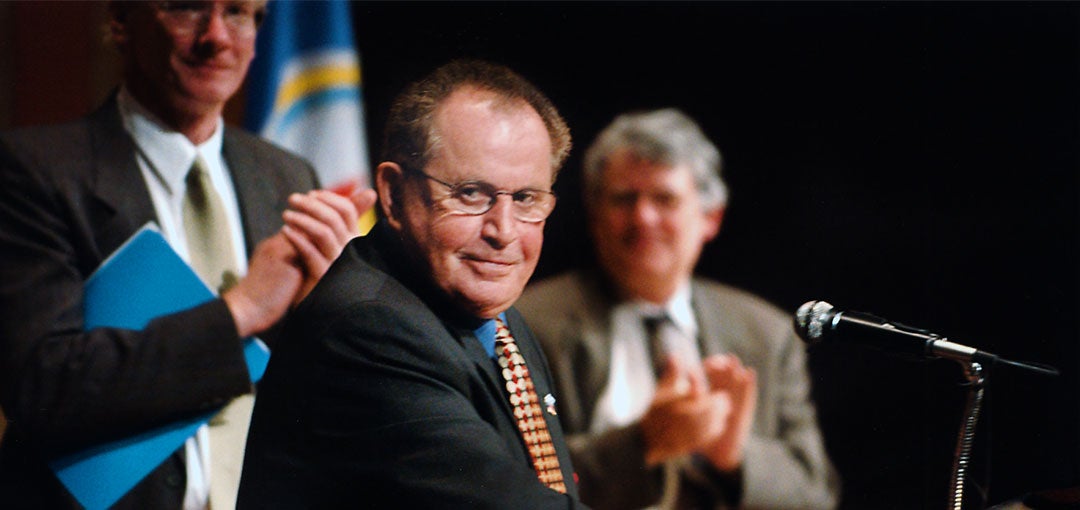“In order to survive we must accept the responsibility of being our brothers’ and sisters’ keepers. Each one of us must do our share of improving our society one day at a time. We all have the ability to defeat evil in our own way.”
-Bill Basch
As a young teenager in Budapest, Bill Basch worked as a courier for Raoul Wallenberg, delivering messages and distributing Schutz-Pässe to Jews in hiding.
Bill Basch was born in 1927 in the small village of Szaszovo, in the Carpathian Mountains of eastern Czechoslovakia which today is part of western Ukraine. His father owned the largest store in the village. Bill grew up in a traditional Jewish household. He and his brothers attended Hebrew school at the small synagogue supported by the thirty-some Jewish families in the village.
When the Germans transferred the Carpathian regions to Hungary in 1940, new anti-Semitic laws took root in the villages of the mountain slopes, threatening the sheltered world of home and synagogue. Jewish schools and businesses were closed. Bill’s father decided to send his three sons to different cities to increase their chances of survival.
At the age of 15, Basch went alone to Budapest where he joined the resistance movement in a city filling with Jewish refugees fleeing other parts of Europe where the Nazis were implementing the Final Solution. But in 1944, the Germans occupied Hungary and began mass deportations of Jews to concentration camps in Germany and Poland. That same year, Raoul Wallenberg joined the Swedish legation in Budapest and Basch began working with Wallenberg’s network to deliver fabricated protection papers to Jews facing deportation. He negotiated the alleyways and the sewer system under Budapest’s streets to avoid patrols of German troops and their Hungarian militia sympathizers.
Basch’s work with the underground came to an abrupt end in November 1944 when he mistakenly exited a sewer in a courtyard and encountered Hungarian fascist militiamen. A chase ensued and, to escape, Bill fell in with a group of people who, he discovered, were being marched to the train station for deportation to Buchenwald.
At Buchenwald, Basch’s survival instincts endured. He volunteered for a crew repairing bombed railroad tracks, knowing that those who did not work were killed. In the spring of 1945, the Germans sent thousands of surviving prisoners on a death march to Dachau, where he survived the horrors of the final weeks of the war until the concentration camp was liberated in April. Basch was sent to an American field hospital where, after being in a coma for a month, he awoke on his 17th birthday. Searching for his family, he found one sister in Budapest: his father and one brother had disappeared, and his mother and a sister died at Auschwitz. He later discovered that another brother had also managed to survive and had made his way to Israel.

In 1947 Basch arrived penniless in the United States. He found work in Los Angeles and learned English at night school. Later he was joined by his sister and brother. Basch married and had three children, and became a successful businessman in the garment industry. He was one of the Holocaust survivors who told their stories in the 1998 Oscar-winning documentary, “The Last Days.” Bill Basch died in 2009 in Los Angeles at the age of 82.

